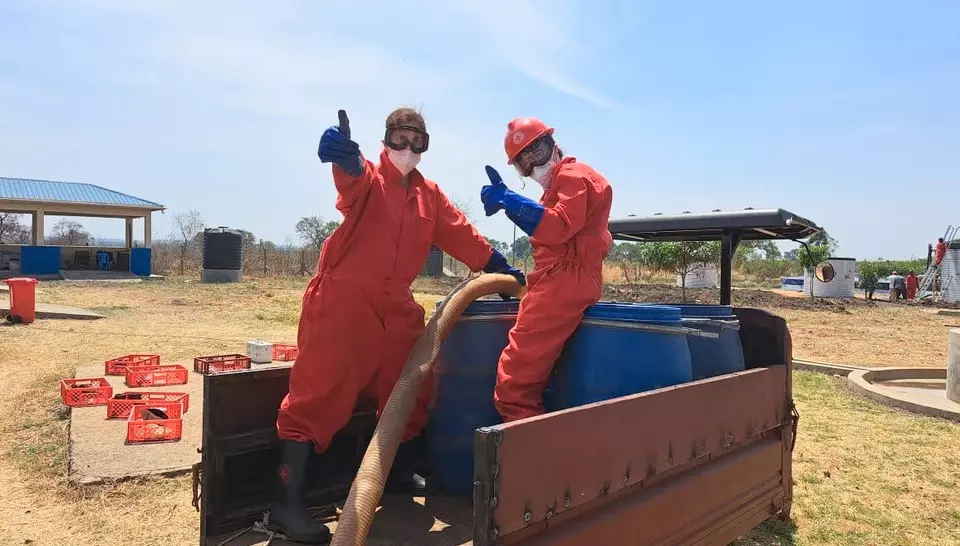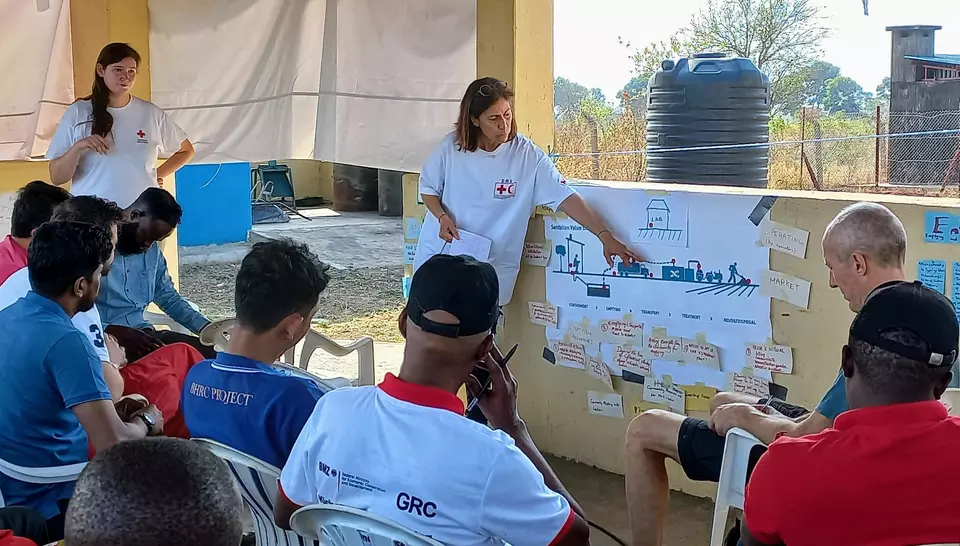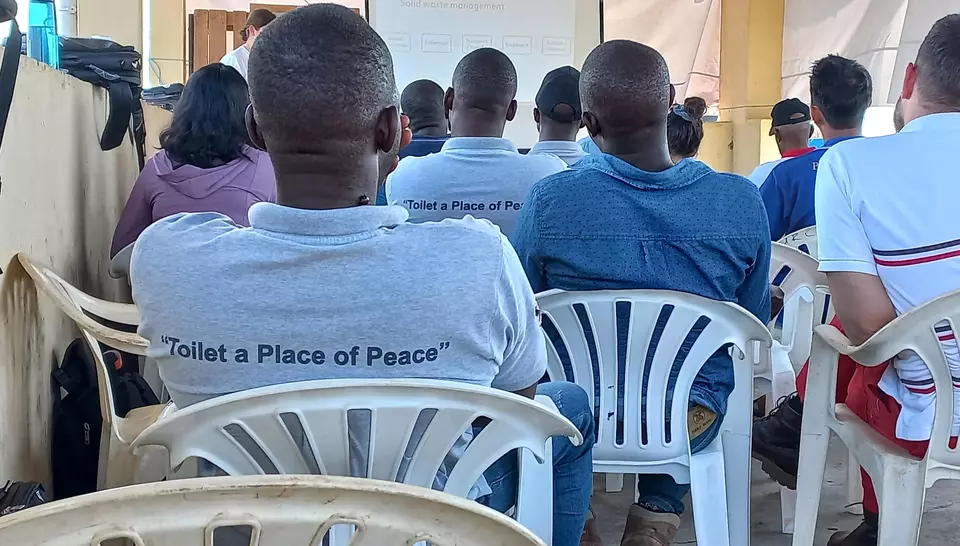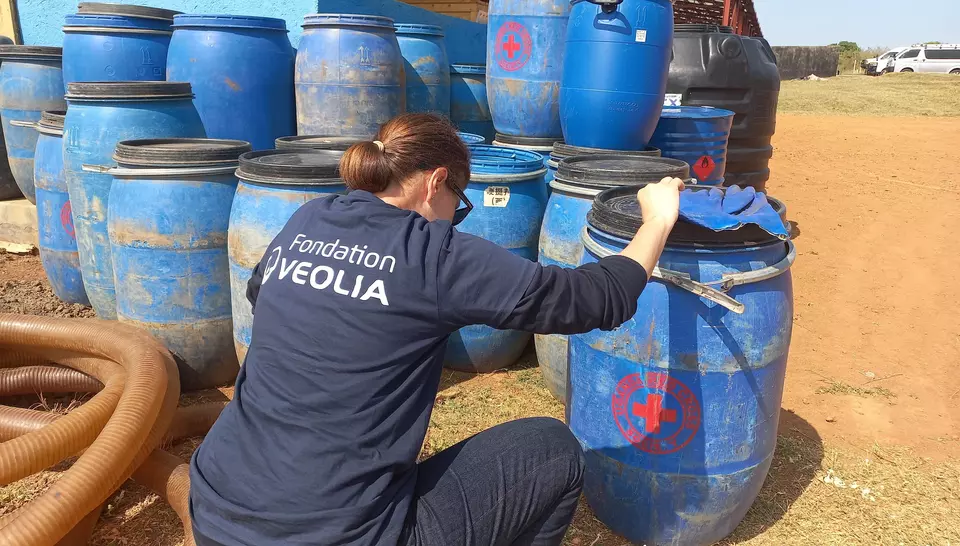Faced with the growing challenges of sanitation in refugee camps, humanitarian actors are professionalising their approach. The Veolia Foundation is providing its expertise to the International Federation of Red Cross and Red Crescent Societies (IFRC) to train its staff.
Sanitation is becoming an increasingly important issue on the global humanitarian agenda. The proliferation of overcrowded refugee and displaced persons camps is prompting actors in the sector to come up with new solutions for managing faecal sludge on a large scale. They are developing innovative systems to limit health risks and management costs.
Among these actors, the Austrian Red Cross has developed a training module on the subject. Dedicated to ‘Faecal Sludge Management’, it is aimed at emergency response teams (‘ERUs’) from the Red Cross movement around the world. The aim is to better prevent epidemics, particularly cholera*, by preventing soil and water resource contamination during faecal sludge management.
It is in this context that the Veolia Foundation's expertise in emergency sanitation was called upon. Two Veoliaforce volunteers helped lead an FSM ERU session held in spring 2025 in Imvepi, north-western Uganda.
Elettra Balboni, from Veolia Eau France, and Antonella Fioravanti, from the Business Support and Performance Department (DSMP) of Veolia, became trainers for Red Cross team members. They raised awareness and trained humanitarian personnel in best practices for collecting and treating faecal sludge. This sharing of expertise is essential on a subject that is often misunderstood.
---
* Which spreads via contaminated faeces.
What does emergency sanitation training look like?
The presence of trainers and learners was made possible by the involvement of several partners working with the International Federation of Red Cross and Red Crescent Societies (IFRC): the French Red Cross, the Austrian Red Cross and the Ugandan Red Cross.






